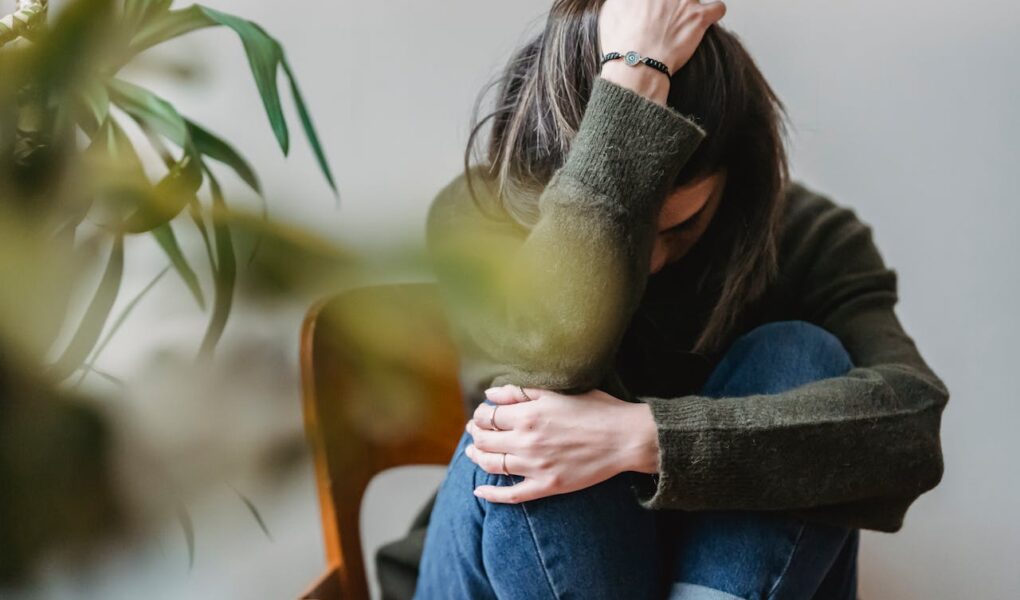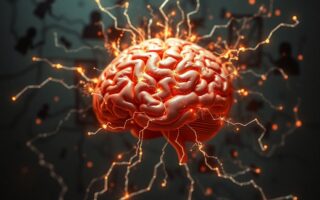How to Calm an Anxiety Attack: Effective Strategies for Finding Relief
Experiencing an anxiety attack can be overwhelming and frightening. The intense feelings of fear, panic, and physical discomfort can make it challenging to cope. However, there are several strategies that individuals can use to help calm anxiety attacks and regain a sense of control. In this comprehensive guide, we’ll explore effective techniques and coping mechanisms for managing anxiety attacks.
Understanding Anxiety Attacks
Before delving into coping strategies, it’s essential to understand what anxiety attacks are and how they manifest. Anxiety attacks, also known as panic attacks, are sudden episodes of intense fear or apprehension that can occur without warning. These attacks often peak within minutes and are characterized by various physical and psychological symptoms, including rapid heartbeat, sweating, trembling, shortness of breath, and feelings of impending doom.
Coping Strategies for Calming Anxiety Attacks
1. Deep Breathing Exercises
- Deep breathing exercises are a powerful tool for managing anxiety attacks. Practice slow, deep breaths, inhaling through your nose and exhaling through your mouth. Focus on expanding your diaphragm and filling your lungs with air. This can help activate the body’s relaxation response and reduce feelings of panic.
2. Mindfulness and Grounding Techniques
- Mindfulness and grounding techniques involve bringing your attention to the present moment and connecting with your surroundings. Try grounding yourself by focusing on sensory experiences, such as the feel of your feet on the ground or the sounds around you. Engaging your senses can help anchor you in the present and alleviate anxiety.
3. Progressive Muscle Relaxation (PMR)
- Progressive muscle relaxation is a technique that involves tensing and then relaxing different muscle groups in the body. Start by tensing a muscle group for a few seconds, then release the tension while focusing on the sensation of relaxation. Repeat this process throughout your body, moving from head to toe. PMR can help reduce physical tension and promote a sense of calm.
4. Visualizations and Imagery
- Visualizations and guided imagery can be powerful tools for calming anxiety attacks. Close your eyes and imagine yourself in a peaceful, serene environment, such as a beach or forest. Focus on the details of your surroundings and visualize yourself feeling safe and relaxed. This mental imagery can help shift your focus away from anxiety-provoking thoughts.
5. Practice Acceptance and Self-Compassion
- During an anxiety attack, it’s essential to practice self-compassion and acceptance. Remind yourself that it’s okay to experience anxiety and that you’re not alone in your struggles. Instead of fighting against your anxiety, try to accept it without judgment. Offer yourself words of kindness and reassurance, acknowledging the difficulty of the situation.
| Coping Strategies for Calming Anxiety Attacks |
|---|
1. Deep Breathing ExercisesDeep breathing exercises are a powerful tool for managing anxiety attacks. Practice slow, deep breaths, inhaling through your nose and exhaling through your mouth. Focus on expanding your diaphragm and filling your lungs with air. This can help activate the body’s relaxation response and reduce feelings of panic. |
2. Mindfulness and Grounding TechniquesMindfulness and grounding techniques involve bringing your attention to the present moment and connecting with your surroundings. Try grounding yourself by focusing on sensory experiences, such as the feel of your feet on the ground or the sounds around you. Engaging your senses can help anchor you in the present and alleviate anxiety. |
3. Progressive Muscle Relaxation (PMR)Progressive muscle relaxation is a technique that involves tensing and then relaxing different muscle groups in the body. Start by tensing a muscle group for a few seconds, then release the tension while focusing on the sensation of relaxation. Repeat this process throughout your body, moving from head to toe. PMR can help reduce physical tension and promote a sense of calm. |
4. Visualizations and ImageryVisualizations and guided imagery can be powerful tools for calming anxiety attacks. Close your eyes and imagine yourself in a peaceful, serene environment, such as a beach or forest. Focus on the details of your surroundings and visualize yourself feeling safe and relaxed. This mental imagery can help shift your focus away from anxiety-provoking thoughts. |
5. Practice Acceptance and Self-CompassionDuring an anxiety attack, it’s essential to practice self-compassion and acceptance. Remind yourself that it’s okay to experience anxiety and that you’re not alone in your struggles. Instead of fighting against your anxiety, try to accept it without judgment. Offer yourself words of kindness and reassurance, acknowledging the difficulty of the situation. |
How to calm anxiety attack FAQs
- What is an anxiety attack, and how is it different from a panic attack?
- An anxiety attack, also known as a panic attack, is a sudden onset of intense fear or discomfort that reaches its peak within minutes. Both terms are often used interchangeably to describe the same experience. However, some differentiate between the two based on the severity and duration of symptoms. Anxiety attacks may be triggered by specific stressors and tend to be less severe than panic attacks, which typically come on suddenly and involve more intense physical symptoms.
- What are the common triggers for anxiety attacks?
- Common triggers for anxiety attacks include stress, traumatic events, phobias, major life changes, and certain medical conditions. Specific triggers vary from person to person, and identifying them can help individuals better manage their anxiety.
- What are the physical symptoms of an anxiety attack?
- Physical symptoms of an anxiety attack can include rapid heartbeat, sweating, trembling or shaking, shortness of breath, chest pain or discomfort, dizziness, nausea, and a feeling of choking. These symptoms can mimic those of a heart attack, leading to further distress.
- Can anxiety attacks occur without a specific trigger?
- Yes, anxiety attacks can occur without a specific trigger, although they may still be influenced by underlying stress or anxiety. Sometimes, seemingly mundane situations or thoughts can lead to an anxiety attack in individuals prone to anxiety disorders.
- How long do anxiety attacks typically last?
- The duration of anxiety attacks varies from person to person and can range from a few minutes to several hours. Most anxiety attacks peak within 10 to 30 minutes and gradually subside, though some may persist for longer periods.
- Are anxiety attacks dangerous? Can they lead to other health problems?
- Anxiety attacks themselves are not life-threatening, but they can be extremely distressing and disruptive to daily life. However, frequent or severe anxiety attacks can contribute to the development of anxiety disorders, depression, and other mental health conditions if left untreated.
- What should I do if I experience an anxiety attack in public?
- If you experience an anxiety attack in public, try to find a quiet, safe space where you can practice deep breathing and relaxation techniques. Focus on grounding yourself in the present moment and remind yourself that the anxiety attack will pass. If necessary, seek support from a trusted friend, family member, or mental health professional.
- Are there any medications or supplements that can help with anxiety attacks?
- Medications such as benzodiazepines, antidepressants, and beta-blockers may be prescribed to help manage anxiety attacks. Additionally, certain supplements like magnesium, omega-3 fatty acids, and herbal remedies like valerian root may offer some relief. However, it’s essential to consult with a healthcare provider before starting any new medication or supplement regimen.
- Can therapy or counseling be effective for managing anxiety attacks?
- Yes, therapy or counseling, such as cognitive-behavioral therapy (CBT), exposure therapy, and relaxation techniques, can be highly effective for managing anxiety attacks. These approaches help individuals identify and challenge negative thought patterns, learn coping skills, and develop strategies to reduce anxiety.
- What is an anxiety attack, and how is it different from a panic attack?
- An anxiety attack, also known as a panic attack, is a sudden onset of intense fear or discomfort that reaches its peak within minutes. Both terms are often used interchangeably to describe the same experience. However, some differentiate between the two based on the severity and duration of symptoms. Anxiety attacks may be triggered by specific stressors and tend to be less severe than panic attacks, which typically come on suddenly and involve more intense physical symptoms.
- What are the common triggers for anxiety attacks?
- Common triggers for anxiety attacks include stress, traumatic events, phobias, major life changes, and certain medical conditions. Specific triggers vary from person to person, and identifying them can help individuals better manage their anxiety.
- What are the physical symptoms of an anxiety attack?
- Physical symptoms of an anxiety attack can include rapid heartbeat, sweating, trembling or shaking, shortness of breath, chest pain or discomfort, dizziness, nausea, and a feeling of choking. These symptoms can mimic those of a heart attack, leading to further distress.
- Can anxiety attacks occur without a specific trigger?
- Yes, anxiety attacks can occur without a specific trigger, although they may still be influenced by underlying stress or anxiety. Sometimes, seemingly mundane situations or thoughts can lead to an anxiety attack in individuals prone to anxiety disorders.
- How long do anxiety attacks typically last?
- The duration of anxiety attacks varies from person to person and can range from a few minutes to several hours. Most anxiety attacks peak within 10 to 30 minutes and gradually subside, though some may persist for longer periods.
- Are anxiety attacks dangerous? Can they lead to other health problems?
- Anxiety attacks themselves are not life-threatening, but they can be extremely distressing and disruptive to daily life. However, frequent or severe anxiety attacks can contribute to the development of anxiety disorders, depression, and other mental health conditions if left untreated.
- What should I do if I experience an anxiety attack in public?
- If you experience an anxiety attack in public, try to find a quiet, safe space where you can practice deep breathing and relaxation techniques. Focus on grounding yourself in the present moment and remind yourself that the anxiety attack will pass. If necessary, seek support from a trusted friend, family member, or mental health professional.
- Are there any medications or supplements that can help with anxiety attacks?
- Medications such as benzodiazepines, antidepressants, and beta-blockers may be prescribed to help manage anxiety attacks. Additionally, certain supplements like magnesium, omega-3 fatty acids, and herbal remedies like valerian root may offer some relief. However, it’s essential to consult with a healthcare provider before starting any new medication or supplement regimen.
- Can therapy or counseling be effective for managing anxiety attacks?
- Yes, therapy or counseling, such as cognitive-behavioral therapy (CBT), exposure therapy, and relaxation techniques, can be highly effective for managing anxiety attacks. These approaches help individuals identify and challenge negative thought patterns, learn coping skills, and develop strategies to reduce anxiety.
- Are there lifestyle changes I can make to reduce the frequency of anxiety attacks?
- Yes, certain lifestyle changes can help reduce the frequency and severity of anxiety attacks. These include regular exercise, healthy eating habits, adequate sleep, stress management techniques (such as mindfulness and meditation), limiting caffeine and alcohol intake, and maintaining a supportive social network.
- Can anxiety attacks be a symptom of an underlying medical condition?
- While anxiety attacks are often associated with anxiety disorders, they can also be a symptom of certain medical conditions, such as thyroid disorders, cardiovascular issues, or neurological conditions. It’s essential to consult with a healthcare professional to rule out any underlying medical causes.
- How can I support a loved one experiencing an anxiety attack?
- If someone you care about is experiencing an anxiety attack, offer reassurance and validation of their feelings. Encourage them to practice deep breathing and relaxation techniques and help them find a quiet, safe space if needed. Avoid judgment or criticism and let them know that you’re there to support them.
- What are some relaxation techniques I can use to cope with anxiety attacks?
- Relaxation techniques such as deep breathing exercises, progressive muscle relaxation, guided imagery, and mindfulness meditation can help calm the mind and body during an anxiety attack. Practicing these techniques regularly can also build resilience to future attacks.
- How long do anxiety attacks typically last?
- The duration of anxiety attacks varies from person to person and can range from a few minutes to several hours. Most anxiety attacks peak within 10 to 30 minutes and gradually subside, though some may persist for longer periods.
- Are anxiety attacks dangerous? Can they lead to other health problems?
- Anxiety attacks themselves are not life-threatening, but they can be extremely distressing and disruptive to daily life. However, frequent or severe anxiety attacks can contribute to the development of anxiety disorders, depression, and other mental health conditions if left untreated.
- What should I do if I experience an anxiety attack in public?
- If you experience an anxiety attack in public, try to find a quiet, safe space where you can practice deep breathing and relaxation techniques. Focus on grounding yourself in the present moment and remind yourself that the anxiety attack will pass. If necessary, seek support from a trusted friend, family member, or mental health professional.
- Are there any medications or supplements that can help with anxiety attacks?
- Medications such as benzodiazepines, antidepressants, and beta-blockers may be prescribed to help manage anxiety attacks. Additionally, certain supplements like magnesium, omega-3 fatty acids, and herbal remedies like valerian root may offer some relief. However, it’s essential to consult with a healthcare provider before starting any new medication or supplement regimen.
- Can therapy or counseling be effective for managing anxiety attacks?
- Yes, therapy or counseling, such as cognitive-behavioral therapy (CBT), exposure therapy, and relaxation techniques, can be highly effective for managing anxiety attacks. These approaches help individuals identify and challenge negative thought patterns, learn coping skills, and develop strategies to reduce anxiety.
- Are there lifestyle changes I can make to reduce the frequency of anxiety attacks?
- Yes, certain lifestyle changes can help reduce the frequency and severity of anxiety attacks. These include regular exercise, healthy eating habits, adequate sleep, stress management techniques (such as mindfulness and meditation), limiting caffeine and alcohol intake, and maintaining a supportive social network.
- Can anxiety attacks be a symptom of an underlying medical condition?
- While anxiety attacks are often associated with anxiety disorders, they can also be a symptom of certain medical conditions, such as thyroid disorders, cardiovascular issues, or neurological conditions. It’s essential to consult with a healthcare professional to rule out any underlying medical causes.
- How can I support a loved one experiencing an anxiety attack?
- If someone you care about is experiencing an anxiety attack, offer reassurance and validation of their feelings. Encourage them to practice deep breathing and relaxation techniques and help them find a quiet, safe space if needed. Avoid judgment or criticism and let them know that you’re there to support them.
- What are some relaxation techniques I can use to cope with anxiety attacks?
- Relaxation techniques such as deep breathing exercises, progressive muscle relaxation, guided imagery, and mindfulness meditation can help calm the mind and body during an anxiety attack. Practicing these techniques regularly can also build resilience to future attacks.
Conclusion
Experiencing an anxiety attack can be a challenging and distressing experience, but it’s essential to remember that there are effective strategies for finding relief. By incorporating deep breathing exercises, mindfulness techniques, progressive muscle relaxation, visualizations, and self-compassion into your coping toolkit, you can empower yourself to manage anxiety attacks more effectively. Remember to be patient and gentle with yourself as you navigate this process, and don’t hesitate to seek support from loved ones or mental health professionals when needed. With time and practice, you can learn to calm anxiety attacks and regain a sense of control over your life.














